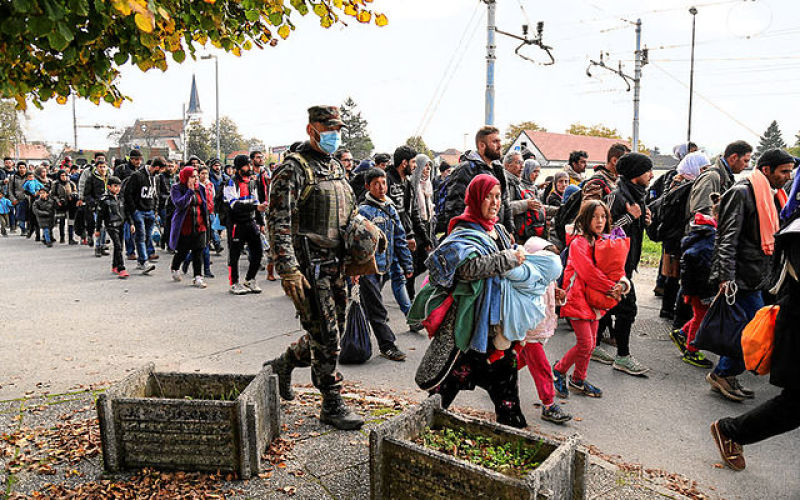
Christian converts coming to Britain for asylum are being asked strange questions to assess whether they are truly running from religious persecution, according to a BBC report.
Asylum seekers are protesting the kind of questions being asked, and Britain's MPs from an informal 'International Freedom of Religion or Belief' group in the UK parliament have come in support of the refugees.
"The problem with those questions is that if you are not genuine you can learn the answers, and if you are genuine, you may not know the answers," MP Baroness Berridge, head of the parliamentary group, told BBC.
The questions ranged from, "Can you name the twelve apostles?" "When is Pentecost?" to "How many books are in the Bible?" and "Can you recite Ten Commandments?"
A new report titled 'Asylum Policy Instruction on assessing credibility and refugee status' pointed out that these kind of questions are akin to Bible trivia, and are a poor evaluation method of gauging true faith.
The report said that that the answers refugee seekers give regarding Christian tradition have to be judged with thorough understanding and knowledge of the Bible, but the "caseworkers are not qualified to assess the accuracy or relevance of answers to more than the most basic knowledge questions (another reason for not overdoing that line of questioning at interview)."
Reverend Mark Miller, who provides guidance to the Home Office about faith, said that officers could not understand why people had converted to Christianity.
"Asylum assessors should be trying to understand why it is someone has left behind the faith of their family, their faith of their upbringing, and chosen to follow another faith. The guidelines say that this is a major decision that has been made and assessors should be understanding why this decision has come about," he said.
An Iranian covert named Mohammed said that he applied for asylum in UK to flee persecution, but he was rejected after the interview.
"One question they asked me was very strange - what color was the cover of the Bible," he told the BBC. "I knew there were different colors. The one I had was red. They asked me questions I was not able to answer - for example, what are the Ten Commandments. I could not name them all from memory."
The website of the activist parliamentary group noted in a press release that the matter of conversion is a very complex subject.
"While the law is clear that religious persecution constitutes grounds for asylum, assessment of religion based asylum applications is complex and challenging due to the inherently internal and personal nature of religion and belief. This is compounded by the fact that persecution on the basis of religion or belief encompasses a wide range of human rights violations and relates to complex dynamics of communal identities, politics, conflicts and radical organisations."



















